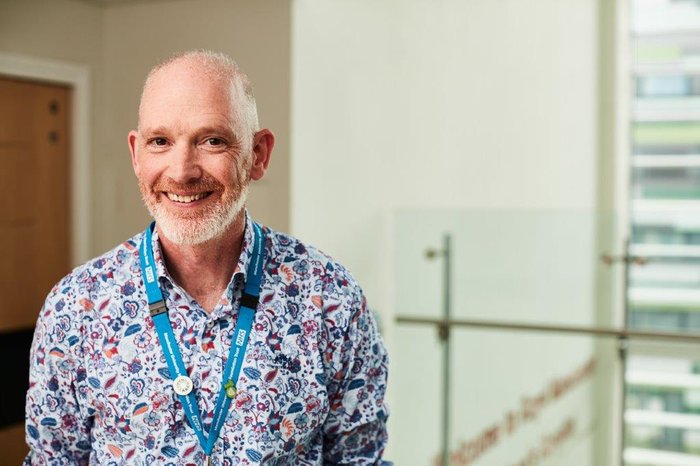Revolutionising stem cell transplants to treat acute myeloid leukaemia (AML)
Acute myeloid leukaemia (AML) is an aggressive form of blood cancer which can be very difficult to treat. Professor Wynn plans to develop and test a new type of stem cell transplant which he hopes could be a better treatment option for people with this disease.

Professor Robert Wynn
The challenge
AML is an aggressive form of blood cancer which can be very difficult to treat. Around 3,000 people are diagnosed with AML every year in the UK. For about 20% of people with AML, chemotherapy doesn’t work, leaving these individuals with very few treatment options. Stem cell transplants are a common treatment option. This is where stem cells (cells at an early stage of development in your body) that are damaged are replaced with new healthy stem cells. Unfortunately, many individuals with AML often still see their cancer return and there are often no further treatment options available. There is a desperate need for better treatments for people with this disease.
The project
In this project, Professor Wynn and his team at the University of Manchester plan to develop and test a new type of stem cell transplant that includes extra white blood cells called granulocytes. Granulocytes give the body’s immune system more strength to help fight infection and destroy cancer cells. Granulocytes can detect signals from cancer cells and release chemicals that alert other parts of the immune system to join the fight. They seek out and find these cancer cells by releasing chemicals stored in their granules and can directly damage or kill cancer cells. This approach has already shown success in curing young children who previously had no other treatment options. The researchers now want to see if it works just as well in young adults. This research involves two stages. Researchers will:
- Determine the safest and most effective dose of granulocytes.
- Test how well this new treatment works for young adults with AML who have no other treatment options.
The future
If successful, this this project could rapidly improve survival rates for people with this aggressive form of blood cancer. It offers new hope for many young adults with AML who were previously told there were no further treatment options available.
